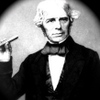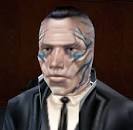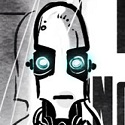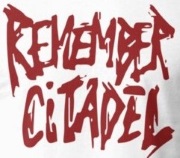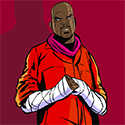|
bonestructure posted:Many words Thank you for this amazing write-up. As I mentioned before, this case has been one of those that stuck with me ever since I first heard about it. I can't even begin to imagine their terror there in the pitch-black jungle, predators lurking in the dark unseen. Utterly terrifying. If they had gone in search of that bird, I hope they at least got to see it. 
|
|
|
|

|
| # ? Apr 29, 2024 18:05 |
|
Tired Moritz posted:Talking about books, what's the best books if I want to read up on hosed up crimes or serial murderers? I have this on audiobook, it's not badly put together and contains quite a few "lesser known" serial killers as well as the more notorious
|
|
|
|
In honor of the late Sir Christopher Lee, let's revisit the fact that France still did public guillotine executions until 1938, and continued to use the guillotine until 1977. Lee, at the age of 17, witnessed the last public beheading. http://en.wikipedia.org/wiki/Eugen_Weidmann https://www.youtube.com/watch?v=_kSihve-BaE If I had to be executed, that doesn't seem like a bad way to go. Electric chairs, firing squads, hangings, and lethal injections can sometimes screw up, but a guillotine seems pretty quick and sure. While doing a little Googling to find out if my supposition was correct, I found this delightfully unnerving Wikipedia article: https://en.wikipedia.org/wiki/Execution_of_Clayton_Lockett quote:From 1890 to 2010, the rate of botched lethal injections in the United States was 7.1%, higher than any other form of execution, with firing squads at 0%, the electric chair at 1.9%, hanging at 3.1%, and the gas chamber at 5.4%.[11]  It doesn't matter what your stance is on capital punishment (and please, for the love of this thread, let's not derail it on that subject), the fact that some states are making their own secret, untested cocktails of lethal injections in the name of "humane" executions is pretty fuckin' creepy. Give me the Razor of France over that, any day. It doesn't matter what your stance is on capital punishment (and please, for the love of this thread, let's not derail it on that subject), the fact that some states are making their own secret, untested cocktails of lethal injections in the name of "humane" executions is pretty fuckin' creepy. Give me the Razor of France over that, any day.
|
|
|
|
bonestructure posted:
Outstanding writeup and very persuasive, thanks. I was thinking that with this story, and the one about the poor Germans in Death Valley, that there could be a uniquely European element to their tragedies. Coming from countries that are densely settled and with some of the best infrastructure in the world, they may simply not have been used to thinking about wilderness in the way that, say, Californians and Panamanian do. The idea that a military "base" could be a completely empty desert encompassing hundreds of square miles, or that a famous and well-traveled hiking trail could be very dangerous if traveled a few kilometers too far, might never have occurred to them. There's also a drastically contrasting sense of scale between Europe and the Americas. California alone is larger than the entire country of Germany. Panama is twice the size of the Netherlands, but has less than a fifth of its population. And so on.
|
|
|
|
Chicken Butt posted:There's also a drastically contrasting sense of scale between Europe and the Americas. California alone is larger than the entire country of Germany. Panama is twice the size of the Netherlands, but has less than a fifth of its population. And so on. As a goonette friend of mine put it: "to an American a hundred years is a very long time, to us Brits, a hundred years is a very long distance". It's just a very different working idea of scale.
|
|
|
|
I still don't think I get the idea of these military bases in the desert where nobody is there. I get that they're protected by their remoteness but they're certainly not impossible to get there if you're determined and prepared. So what's there, what are they for and why even bother marking them on a map if they're not worth guarding?
|
|
|
|
Walton Simons posted:I still don't think I get the idea of these military bases in the desert where nobody is there. I get that they're protected by their remoteness but they're certainly not impossible to get there if you're determined and prepared. So what's there, what are they for and why even bother marking them on a map if they're not worth guarding? To say the land belongs to the government???
|
|
|
|
Live firing test range I am guessing. Possibly for bombers and long range artillery.
|
|
|
|
Karma Monkey posted:Really? Starve to death rather than fix your own drat dinner? His wife must have been so happy to get out of the hospital and find out she was free from that jackass. I can only assume you must have some level of dementia to choose to die rather than feed yourself.
|
|
|
|
Walton Simons posted:I still don't think I get the idea of these military bases in the desert where nobody is there. I get that they're protected by their remoteness but they're certainly not impossible to get there if you're determined and prepared. So what's there, what are they for and why even bother marking them on a map if they're not worth guarding? China Lake: quote:NAWS China Lake provides and maintains land, facilities and other assets that support the Navy’s research, development, acquisition, testing and evaluation (RDAT&E) of cutting-edge weapons systems for the warfighter. So, missile research? Yeah, you'd want a lot of land.
|
|
|
|
Darkhold posted:I had a co-worker whose father-in-law refused to cook his own meals/food shop because that was 'women's work' after his wife died if his two daughters couldn't come around to fix his meals for him he'd literally choose to starve. He was just out of his second visit to the hospital for malnourishment when I quit. Kurt Godel Wikipedia says posted:Later in his life, Gödel suffered periods of mental instability and illness. He had an obsessive fear of being poisoned; he would eat only food that his wife, Adele, prepared for him. Late in 1977, she was hospitalized for six months and could no longer prepare her husband's food. In her absence, he refused to eat, eventually starving to death.[20] He weighed 65 pounds (approximately 30 kg) when he died. His death certificate reported that he died of "malnutrition and inanition caused by personality disturbance" in Princeton Hospital on January 14, 1978.[21] Adele's death followed in 1981.
|
|
|
|
We were just talking about him! pookel posted:Some interesting material here, some creepy, some funny: http://en.wikipedia.org/wiki/List_of_unusual_deaths Spooky!
|
|
|
|
JacquelineDempsey posted:
Utah brought back the firing squad because of the lethal injection shortage. http://www.npr.org/2015/03/23/394957508/utah-brings-back-firing-squads-as-lethal-injection-drugs-remain-scarce
|
|
|
|
Tired Moritz posted:Talking about books, what's the best books if I want to read up on hosed up crimes or serial murderers? You can't go wrong with the most classic of classics, In Cold Blood by Truman Capote.
|
|
|
|
I'm wondering now, is it an American thing to think of military bases as places to house lots of troops while they train and equipment gets tested? It never really occurred to me to think of them as primarily strategic installations that you put near places that need to be defended. But then, we usually fight wars far from home - there's not much need to set up bases for local defense.
|
|
|
|
pookel posted:I'm wondering now, is it an American thing to think of military bases as places to house lots of troops while they train and equipment gets tested? It never really occurred to me to think of them as primarily strategic installations that you put near places that need to be defended. But then, we usually fight wars far from home - there's not much need to set up bases for local defense. Put it this way: where along our thousands of miles of borders do you think the US is most vulnerable to a land based assault from the Mexican or Canadian military powers?
|
|
|
|
pookel posted:I'm wondering now, is it an American thing to think of military bases as places to house lots of troops while they train and equipment gets tested? It never really occurred to me to think of them as primarily strategic installations that you put near places that need to be defended. But then, we usually fight wars far from home - there's not much need to set up bases for local defense. I get the impression that US military bases are a lot more remote than they are in Europe. I can only speak to living in the UK, but its not uncommon for barracks to be smack bang in the middle of suburbs. Even with bases which don't have obvious purposes, you can usually see buildings from the fence line. I can't remember ever seeing something marked for military use that didn't clearly have occupied buildings within walking distance.
|
|
|
|
pookel posted:I'm wondering now, is it an American thing to think of military bases as places to house lots of troops while they train and equipment gets tested? It never really occurred to me to think of them as primarily strategic installations that you put near places that need to be defended. But then, we usually fight wars far from home - there's not much need to set up bases for local defense. Military bases aren't quite what you'd expect; they're more like ranges (as in the open range). When a foreigner says base they're likely thinking of what we'd call an installation or post. There are lots of installations that have fences and guards, but they're usually the part where there are personnel and equipment to watch. The land where nothing's happening 99% of the time? Not so much. So in the story of the Germans, they indeed would have hit a manned perimeter, but nearer to ridgecrest than their hoped for location.
|
|
|
|
MikeCrotch posted:I get the impression that US military bases are a lot more remote than they are in Europe. I can only speak to living in the UK, but its not uncommon for barracks to be smack bang in the middle of suburbs. Even with bases which don't have obvious purposes, you can usually see buildings from the fence line. I can't remember ever seeing something marked for military use that didn't clearly have occupied buildings within walking distance. One or two firing ranges down south like the Lulworth area in Dorset, but even those are open to the public at certain times. I've walked through the tank ranges there and they have signs warning you not to leave the cleared paths. Most training is done on remote public land tbh; Dartmoor, the Highlands, Snowdonia. We don't have the same kind of space available as the US and the majority of none-urban areas here is farmland or unsuitable for building due to terrain. There's not much else you can do with miles of miles of empty land in Utah beyond fence it in and use it for target practice, and there's always more space in the next state.
|
|
|
|
Back on topic: I was poking around this historical photos site that was posted above (but now I've forgotten what for) and found this bit of history both heartbreaking and creepy. Note: charred, unrecognizable human remains in a photo at the top. Lots of graphic historical photos in side links. Possibly  or or  if you are sensitive to photos of death and violence. if you are sensitive to photos of death and violence.http://rarehistoricalphotos.com/remains-astronaut-vladimir-komarov-man-fell-space-1967/ quote:(Vladimir) Komarov was selected to command the Soyuz 1, in 1967, with Yuri Gagarin as his backup cosmonaut. Both knew the space capsule was not safe to fly, but everyone in space program was terrified of Brezhnev’s reaction to the mission being delayed or scrubbed. Komarov told friends he knew he would probably die. But he wouldn’t back out because he didn’t want Gagarin to die. Vladimir Komarov was among Gagarin’s best friends. quote:As the launch date drew near, everyone was more and more pessimistic. There were serious problems that would make this machine dangerous to navigate in space. The pre-tests flights had been disconcerting, the technicians who had inspected the Soyuz 1 had found 203 structural problems. An atmosphere of foreboding prevailed at the cosmodrome. As Vladimir Komarov climbed into the transfer van to take dhe Ride Down to the pad, he had an air of fatalistic resignation about him. His fellow cosmonauts joshed him, trying to cheer him and get a smile. They started singing, encouraging him to join in. By the time they reached the pad some minutes later, he was singing with them too and the mood of pessimism had lifted somewhat. Gagarin showed up to the launch in full gear and tried to convince the crew to let him pilot the craft instead, but the crew (including Komarov) refused to let him, and Komarov flew the ship, almost certainly knowing that he was likely to die. Eight minutes later Vladimir Komarov was in orbit operating one of the most sophisticated spacecraft ever launched. quote:As Komarov was headed to his doom, US listening posts in Turkey heard him crying in rage, “cursing the people who had put him inside a botched spaceship”. He told ground control officials he knew he was about to die. The Soviet premier Alexei Kosygin called on a video phone to tell him he was a hero. Komarov’s wife was also on the call to talk about what to say to their children. Kosygin was crying. When the capsule began its fatal descent the American intelligence “picked up [Komarov’s] cries of rage as he plunged to his death”. Some translators heard him say, “Heat is rising in the capsule”. He also used the word “killed” — presumably to describe what the engineers had done to him. RIP, Vladimir Komarov. 
|
|
|
|
pookel posted:Back on topic: I was poking around this historical photos site that was posted above (but now I've forgotten what for) and found this bit of history both heartbreaking and creepy. Note: charred, unrecognizable human remains in a photo at the top. Lots of graphic historical photos in side links. Possibly That is one hosed up open-casket funeral.
|
|
|
|
pookel posted:Some interesting material here, some creepy, some funny: http://en.wikipedia.org/wiki/List_of_unusual_deaths quote:2013: João Maria de Souza, 45, of Caratinga, Brazil, was killed by a cow that fell through the roof of his house onto his bed while he was asleep.
|
|
|
pookel posted:Back on topic: I was poking around this historical photos site that was posted above (but now I've forgotten what for) and found this bit of history both heartbreaking and creepy. Note: charred, unrecognizable human remains in a photo at the top. Lots of graphic historical photos in side links. Possibly That is some story. It sounds like Komarov was in love with Gagarin. Also, this could easily be cross-posted into the "badass" thread: quote:But why they gave him an open casket service? Komarov demanded it personally because he wanted to send a message to the government officials who had caused his death. He knew the capsule was unsafe and that he would very likely die, he knew he would not be returning alive so he made the demand before launching. His final “revenge” was forcing his superiors to look at what they had done.
|
|
|
|
|
That is some Final Destination type death right there.
|
|
|
pookel posted:RIP, Vladimir Komarov. Soyuz 1 was a complete disaster where almost everything on the spacecraft was broken; it's a testament to how good of a pilot Komarov was that he was able to manually guide the craft in for reentry while wrestling with a basically nonfunctional capsule. If it wasn't for the fact that "almost everything" also unfortunately included the main parachute, he might've even guided it into a survivable landing. Ironically, thanks to this clusterfuck, the Soyuz program was heavily retooled and is now longest-lived manned spacecraft program in history and one of the most statistically reliable, having outlived Apollo and STS and is still being used to taxi folks to the ISS.
|
|
|
|
|
3 posted:Soyuz 1 was a complete disaster where almost everything on the spacecraft was broken; it's a testament to how good of a pilot Komarov was that he was able to manually guide the craft in for reentry while wrestling with a basically nonfunctional capsule. If it wasn't for the fact that "almost everything" also unfortunately included the main parachute, he might've even guided it into a survivable landing. Well, not right now since the Russians have managed to gently caress up two orbital insertions in a row, but, you know. In principle.
|
|
|
|
Walton Simons posted:I still don't think I get the idea of these military bases in the desert where nobody is there. I get that they're protected by their remoteness but they're certainly not impossible to get there if you're determined and prepared. So what's there, what are they for and why even bother marking them on a map if they're not worth guarding? Experimental aircraft and weapon development/testing mostly. It's remote enough that the desert mostly protects it, once you get closer to the actual base there'll be fences and poo poo, but it's surrounded by long long distances of absolutely nothing. You'd have to be very determined and very well prepared to make it to the actual compound, and they would be able to see you coming against all the nothing waaaaay before you even got close.
|
|
|
|
Madkal posted:That is some Final Destination type death right there. More like an Earthworm Jim style ending https://www.youtube.com/watch?v=3JOoq9UqiU0
|
|
|
|
Tired Moritz posted:Talking about books, what's the best books if I want to read up on hosed up crimes or serial murderers? True Crime: An American Anthology published by Library of America does a admirable job at not being sleazy. https://www.loa.org/volume.jsp?RequestID=289 http://www.amazon.com/True-Crime-Anthology-Harold-Schechter/dp/1598530313 Here's the Washington Post review quote:Murder, let's face it, is as American as cherry pie. Here's two excerpts quote:Benjamin Franklin -The Pennsylvania Gazette, October 24, 1734 quote:
Nckdictator has a new favorite as of 20:41 on Jun 12, 2015 |
|
|
|
Nckdictator posted:True Crime: An American Anthology published by Library of America does a admirable job at not being sleazy. My god, that second piece is an astonishing piece of writing. Especially considering it was written by one man to a deadline, in a time and place where it must have been hellishly difficult to get any sense out of a very frightened neighbourhood. It's so clear and precise and lacking in extreme sensationalism, in some places it almost reads like a well-honed précis for a book or film script. Puts to shame the reporting modern journalists do on mass shootings, no wonder it won an award.
|
|
|
|
Irisi posted:My god, that second piece is an astonishing piece of writing. Especially considering it was written by one man to a deadline, in a time and place where it must have been hellishly difficult to get any sense out of a very frightened neighbourhood. I don't know. I think it could do with a title like Army veteran gets himself a gun and you won't believe what he does next!!!
|
|
|
|
Irisi posted:My god, that second piece is an astonishing piece of writing. Especially considering it was written by one man to a deadline, in a time and place where it must have been hellishly difficult to get any sense out of a very frightened neighbourhood. http://www.journalism.columbia.edu/page/171-berger-award/172 "Berger was assigned to the story by The Times City Desk shortly before 11 A.M. He caught the first available train to Camden; personally covered the story and filed approximately 4,000 words. The last of his copy reached The Times office at 9:20 P.M., about one hour before the first edition closing." I had never heard of Berger before I read his piece in the anthology but Google brought up another story by him. quote:WHEN WE COULD SEE THE COFFINS
|
|
|
|
since y'all liked the other Scientology video so much, here's a hot n' fresh new one, courtesy of forums poster PipeRIfle who found it in a box set out for recycling and sent it to me https://www.youtube.com/watch?v=eKGp2nv67tI the part that gets me about this one is the audience reactions. listen to the timing, and the kinds of noises the audience makes. they have no idea what they're supposed to be applauding, cheering for, gasping at, or laughing at, and the only way they can tell when to is when the Captain pauses in anticipation and waits for them to catch on.
|
|
|
|
I just can't over how goddamn AMERICAN everything put out by Scientology is. As a nation, you guys really do love your fancy graphics, dynamic go-getter type soundtracks and pumped up narrators.
|
|
|
|
KozmoNaut posted:I just can't over how goddamn AMERICAN everything put out by Scientology is. 
|
|
|
|
KozmoNaut posted:I just can't over how goddamn AMERICAN everything put out by Scientology is. Have you ever read anything by or seen any quotes from L. Ron Hubbard? He can't describe anything without directly comparing it to something from real life so it makes sense that his religion is super-derivative too.
|
|
|
|
KozmoNaut posted:I just can't over how goddamn AMERICAN everything put out by Scientology is. Interestingly, a lot of our dynamic go-getter type soundtracks come/came from British library music!
|
|
|
|
As for books on serial killers, my favorite so far has been Robert Graysmith's Zodiac Unmasked. You should note that it's kind of sensationalist and has some pretty wild theories but regardless contains pretty much all the known facts about the case and paints a detailed portrait of Arthur Leigh Allen, the most prominent Zodiac suspect.
|
|
|
|
look, if giving gross old men all your money in exchange for the privilege of being a doped up sex slave on their boat doesn't sound like a great idea to you then scientology may not be your bag
|
|
|
|

|
| # ? Apr 29, 2024 18:05 |
|
The Howard Unruh story reminded me alot of the Hungerford massacre, which I actually learnt about in this thread despite the scarcity of firearms in my country and the rarity of killing sprees.
|
|
|





